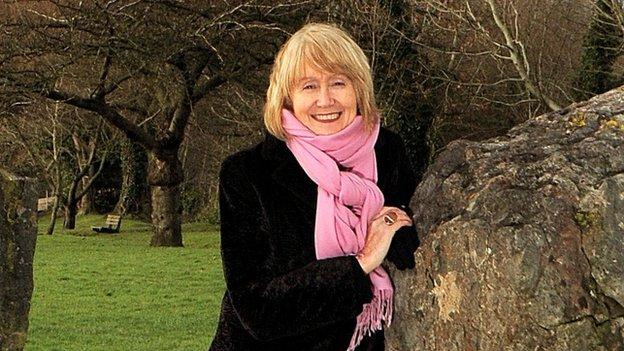EVEL debate: 'We are a nonsense but somehow it works'
- Published
- comments

Madeleine Moon: "The history of these islands is one of constitutional abnormalities"
MPs have finished a three-hour debate on the government's plans for "English votes for English laws".
The opposition parties won a vote at the end by 291 votes to 2 after the Conservatives abstained. Commons leader Chris Grayling defended the proposals to limit the voting rights of MPs from outside England on new laws that affect England alone.
The result of today's vote on a technicality may be insignificant but the concerns voiced by several Conservative MPs suggest next week's vote on whether or not to change the House of Commons rules is not a foregone conclusion.
Beyond the partisan arguments over the issue, there is widespread anger over the way it is being done - via a change to standing orders - and the speed of change (a vote next Wednesday less than two weeks after details of the changes were first unveiled).
Several MPs from Wales spoke during today's debate. Bridgend Labour MP Madeleine Moon said: "The history of these islands is one of constitutional abnormalities. We are a nonsense but somehow it works and it works because in this chamber we are all equal no matter where in the United Kingdom you come from. Therefore to destroy that is nonsense."
Swansea East MP Carolyn Harris said: "They are creating a two tier system of MPs and attempting to create a new parliament through the back door."
But Commons leader Chris Grayling said: "Fairness requires that further devolution of powers to Scotland, England and Wales is accompanied by a louder voice for England here at Westminster on English matters.
"If we are devolving tax rates to other countries in the United Kingdom - and we are currently legislating to do that - it is only fair MPs in those constituencies affected by that change have the decisive say over any tax rates that apply in their constituencies."
He added: "It's simply not right, all members of parliament are equal, all members of parliament will be able to continue to debate and vote on every single piece of legislation that passes through the House of Commons.
"It is simply incorrect to say that any member of this House will be excluded from voting or debating any piece of legislation."
You can read today's debate here, external. The concerns expressed on the Conservative side suggest the government shouldn't take victory in next week's vote for granted.